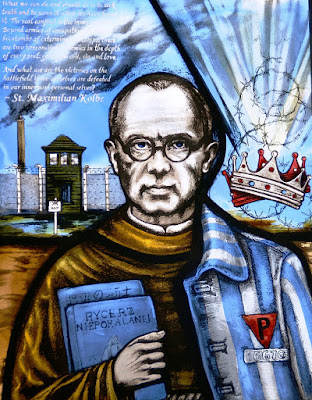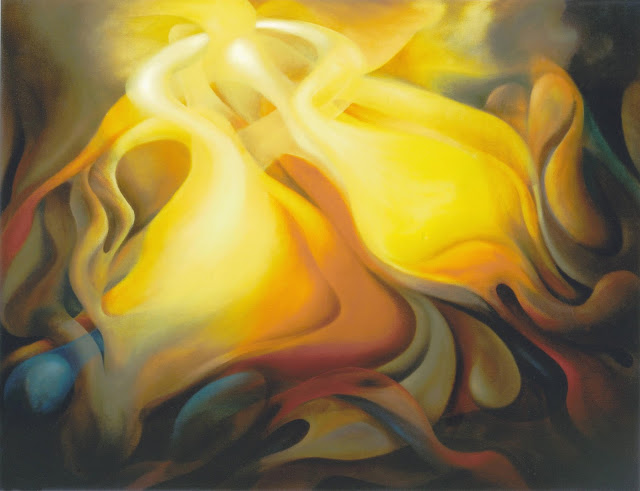Maximilian Kolbe (1894 - 1941)

Maximilian Kolbe died in Auschwitz Concentration Camp on 14 August 1941. He died horribly after volunteering to take the place of another prisoner selected for death by dehydration and starvation. You can read a brief version of that story in 'Man in Striped Pajamas'. During World War II as a Polish Franciscan Friar, Maximilian Kolbe sheltered refugees from Greater Poland, including 2000 Jewish people in his friary at Niepokalanów. Using amateur radio he also actively spoke against Nazi activities. Such actions led to his arrest, imprisonment and death. He was canonized by Pope John Paul II in 1983 as a 'martyr of charity'. At the ceremony in Rome, perhaps the most significant person present was Franciszek Gajowniczek. He was the prisoner whose place Maximilian took in offering his own life in exchange. That man survived Auschwitz and lived until 1995, aged 93. You can read an interesting biography of Maximilian Kolbe in the Jewish Virtual Library . From...



